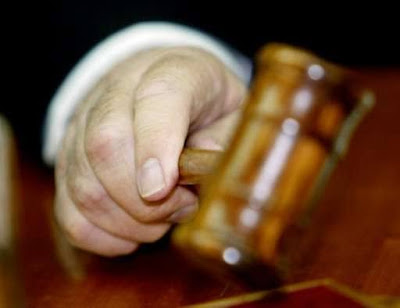POCSO: Accused convicted within a month of filing charge sheet
POCSO: Accused convicted within a month of filing charge sheet
RISHI KHANDELWAL
BACKGROUND
POCSO or The Protection of Children from Sexual Offences Act (POCSO Act) 2012 was established to protect the children against offences like sexual abuse, sexual harassment and pornography. It was formed to provide a child-friendly system for trial underneath which the perpetrators could be punished. The Act defines a child as any person below eighteen years of age. It also makes provisions for avoiding the re-victimization of the child at the hands of the judicial system. Protection of Children from Sexual Offences Act, 2012 received the President’s assent on June 19, 2012. It was notified in the Gazette of India on June 20, in the same year.
The Act also makes it mandatory to report such cases. It makes it the legal duty of a person aware of the offence to report the sexual abuse. In case he fails to do so, the person can be punished with six months’ imprisonment or fine. The Act further states that the evidence of the child should be recorded within a period of thirty days. The Special Court taking cognizance of the matter should be able to complete the trial within the period of one year from the date of taking cognizance of the abuse. It provides that the Special Court proceedings should be recorded in camera and the trial should take place in the presence of parents r any other person in whom the child has trust or confidence.
MAIN ISSUE (Accused convicted within a month of filing charge sheet)
The present case has been filed by the father of the 10-year-old victim, under Section 367AB and 506 of IPC, and under Section 5(m) read with Section 6 of POSCO, who alleged that Anshu trapped his daughter in his house and committed rape on her.
The police had submitted the charge sheet on 19th September, ten days from the date of FIR registration. Wrapping up the trial pragmatically, Addl. District and Sessions Judge Sh. Rajesh Chaudhry passed the order of conviction on October 16th, 2019.
The accused who happened to be the victim’s cousin brother denied the allegations stating that they were prompted by the previous animosity between his father and the victim’s father. He further argued that the victim is only 10 years old and that her statements could not be relied on.
Nonetheless, the court proceeded with a presumption of guilt of the accused under Section 29 of POSCO.
The court examined the statements of all the witnesses, including the medical examiner who confirmed that the nature of injuries was similar to the allegations made in the FIR. The accused convicted within a month of filing the charge sheet.
ALSO READ: DELHI HC UPHOLDS ACQUITTAL OF RAPE ACCUSED
CONCLUSION
Therefore, keeping all the facts and evidence in mind the court held the following: -
- The victim's subsequent conduct of approaching her parents in a cry and limping state was relevant under Section 8 of the Evidence Act. Reliance was placed on Sheikh Zakir v. State of Bihar, AIR 1983 SC 911.
- Her statements were also admissible under Section 157 of the Indian Evidence Act, 1872 as they corroborated with her previous statements under Section 164 of CrPC. Section 157 of the Evidence Act states that in order to corroborate the testimony of a witness, any former statement made by such witness relating to the same fact, at or about the time when the fact took place, or before any authority legally competent to investigate the fact, maybe proved.
- Lastly rejecting the argument that the proceedings were a result of enmity between the parties, the court cited Puranchand v. the State of H.P., (2014) 5 SCC 689, wherein the court had said, "The version of the victim girl…cannot be doubted ignoring even the fact that a girl would put herself to disrepute and go to the extent of supporting her parents to lodge a false case merely due to some enmity with the family of the accused putting her honour at stake".
Accordingly, the court convicted the accused and imposed a life term and fine worth Rs. 2 lakhs.
ALSO READ: ACT OF REGISTRY IS NOT AN ACT OF COURT



Comments
Post a Comment